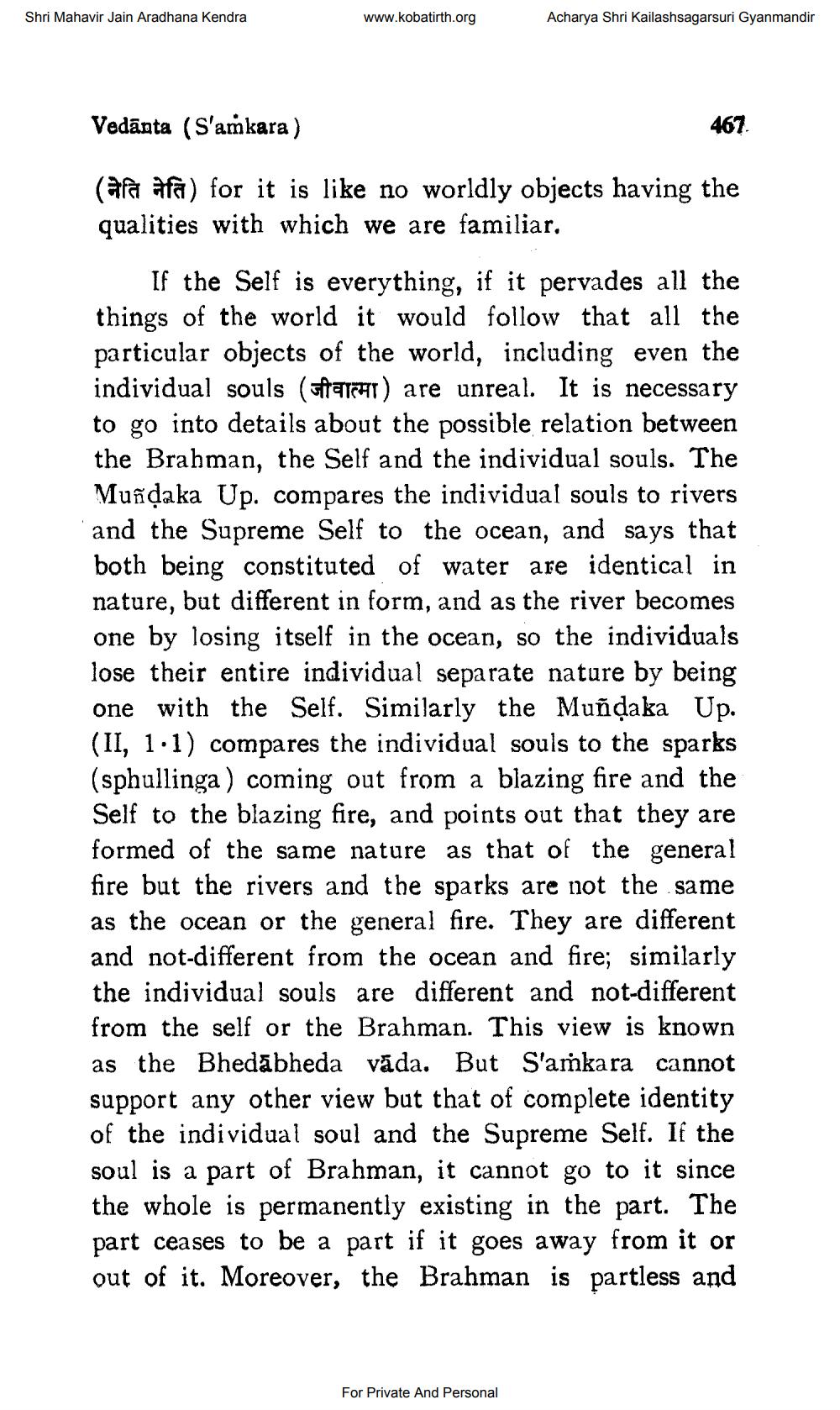________________
Shri Mahavir Jain Aradhana Kendra
www.kobatirth.org
Acharya Shri Kailashsagarsuri Gyanmandir
Vedanta (S'amkara)
( नेति नेति ) for it is like no worldly objects having the qualities with which we are familiar.
For Private And Personal
467.
If the Self is everything, if it pervades all the things of the world it would follow that all the particular objects of the world, including even the individual souls (f) are unreal. It is necessary to go into details about the possible relation between the Brahman, the Self and the individual souls. The Muñḍaka Up. compares the individual souls to rivers and the Supreme Self to the ocean, and says that both being constituted of water are identical in nature, but different in form, and as the river becomes one by losing itself in the ocean, so the individuals lose their entire individual separate nature by being one with the Self. Similarly the Muñḍaka Up. (II, 1.1) compares the individual souls to the sparks (sphullinga) coming out from a blazing fire and the Self to the blazing fire, and points out that they are formed of the same nature as that of the general fire but the rivers and the sparks are not the same as the ocean or the general fire. They are different and not-different from the ocean and fire; similarly the individual souls are different and not-different from the self or the Brahman. This view is known as the Bhedābheda vāda. But S'amkara cannot support any other view but that of complete identity of the individual soul and the Supreme Self. If the soul is a part of Brahman, it cannot go to it since the whole is permanently existing in the part. The part ceases to be a part if it goes away from it or out of it. Moreover, the Brahman is partless and




